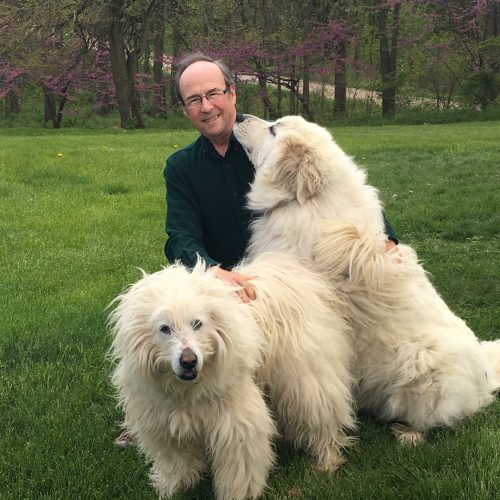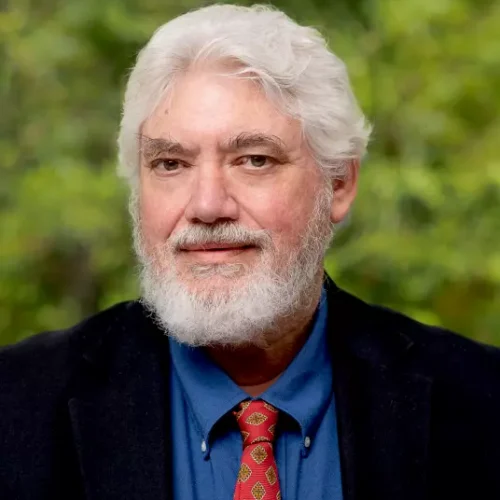The 29th annual Animal Law Conference brought together a global audience of over 500 virtual registrants for three days of education, discussion, and collaboration around the theme Transforming our Relationship with Animals. The fully virtual format allowed participants from around the world to join sessions exploring the evolving role of law, science, and advocacy in building a more just future for animals.
Dates & Location
October 15–17, 2021
Virtual
Registration
Total registrants: 572
Legal Professionals: 191
Law Students: 248
Nonprofit/Public Interest: 78
Animal Activists: 55
Highlights & Reflections
The conference opened Friday with a roundtable discussion on animal cognition, sentience, and emotion, setting the stage for a weekend that challenged long-standing assumptions about nonhuman animals and the legal systems that govern their treatment. Attendees also heard from experts examining how the common law status of animals as property is beginning to shift through litigation and judicial decisions around the world.
Throughout the weekend, sessions addressed a wide range of pressing legal and policy issues. Panels explored the fragility of industrial animal agriculture, animal protection legislation in the U.S. and abroad, and emerging legal strategies to prevent zoonotic disease outbreaks. Saturday’s programming also included sessions on community-driven animal advocacy, preserving the human–animal bond, and courtroom representation for animal victims of cruelty.
The conference featured a keynote presentation by Carl Safina, ecologist and author of Becoming Wild and Beyond Words, who spoke on animal thought, emotion, and culture, challenging attendees to expand how they conceptualize nonhuman life and our shared place in the natural world.
On Sunday, the agenda turned toward professional development and innovation. Attendees engaged with sessions on legal ethics, global animal law education, and the role of the American Bar Association in advancing animal protections. Panels also addressed the future of humane education, investing in plant-based change, and shifting scientific norms around animal experimentation.
The 29th annual Animal Law Conference: Transforming Our Relationship with Animals continued its tradition of providing in-depth legal education and forward-looking conversation, bringing together legal professionals, academics, and advocates committed to shaping a more compassionate and legally just world for animals.
Friday
What Animals Teach Us About Themselves
Recent studies have made significant advances in our understanding of the cognitive skills, social lives, emotional capacities, and sentience of nonhuman animals. These findings challenge long-standing assumptions and demonstrate that we have underestimated the capacities of other animals. This roundtable discussion will share some of these studies and evidence as this year’s conference theme calls us to re-examine and re-imagine our relationship with other animals.
Reforming the Common Law Foundations of Our Relationship with Animals
The status of animals as legal property is an outdated common law construct that governs our legal– and in many ways social and cultural– relationships with animals. In cases challenging this status, attorneys have argued that we must dismantle the current common law and recognize a legal status that considers animals as living, feeling beings capable of a wide range of positive and negative experiences. Judges are starting to agree and beginning to take apart the construct. The speakers on this panel will discuss the recent cases and decisions that are most crucial to transforming the old foundation of our legal relationship with animals.
Factory Farming & The Fragility of Our Food System
The current industrial animal agricultural complex, otherwise known as factory farming, is at an extremely critical juncture. This panel will examine the devastating effects and impacts upon animal protection, human health, worker safety, and ecosystem sustainability. It will also discuss the ways in which legal and regulatory efforts to protect the animal agriculture industry—including so-called “Real Meat” laws in the US and the EU’s Amendment 171—wage linguistic and semantic battles over the meaning of “meat” and “milk.
Keynote Presentation: Animal Thought, Emotion, and Culture
Humans think, experience emotions, and develop cultures. Turns out, so do many other species. Drawing on his two most recent books, Becoming Wild and Beyond Words, Carl Safina will discuss cognition, emotion, and culture in non-human beings. He will show and talk about what makes us human and what makes many other species who they are. He will also talk about what is at stake in this living world, for us and for all our co-voyaging species.
Saturday
Litigating for Change: Challenges, Opportunities, and Victories
While litigation has long been a tool for animal protection, it is increasingly presenting innovative opportunities for change. Panelists will discuss recent animal law litigation through the lens of first-hand experience, with an emphasis on practical insight.
From the U.S. to Australia: Animal Protection Legislation Across the World
Using legislation to protect animals is a worldwide effort. This panel will cover animal protection legislation with an international focus, to learn how work to protect animals in the United States Congress compares with similar efforts across the globe – from the United States to Canada, and from the European Union to Australia.
Implementing a One Health Approach to Protect Humans, Animals, and the Environment
One Health is a movement to link human, animal, and ecosystem health. Calls for a global, trans-disciplinary approach resound in the wake of the COVID-19 pandemic, which laid bare the extent of our exposure to zoonotic disease spillover. From wild animal markets, to roadside zoos, to the wildlife trade, the link between human health and our exploitation of wild animals is clear. This panel will discuss the risks and regulatory responses to zoonotic disease in an effort to prevent future pandemics.
Transforming the Lives of Animals by Building Stronger Communities
Panelists from diverse backgrounds and cultures will share ways in which they are advocating for animals, while building community and sometimes challenging conventional norms. This session will provide a glimpse into the future of animal advocacy.
Representing Victim Voices: Courtroom Animal Advocate Programs
For animals harmed by criminal cruelty, the unusual legal issues, disproportionate complexity, and animal-specific needs implicated by their cases make giving voice to the animals’ interests particularly important. Five years ago, Connecticut opened a new front in this effort with the passage of Desmond’s Law, which enables pro-bono attorneys and law students to appear in court on behalf of animal victims of cruelty. In subsequent years interest in such Courtroom Animal Advocate Program laws has grown across the nation. Join our speakers for a discussion touching on the past, present, and future of CAAP laws — and their transformative potential for legal advocacy in cruelty cases.
Preserving the Human-animal Bond and Preventing Neglect by Facilitating Access to Care
Animal neglect takes many forms, and can be conflated with unwillingness to provide care to an animal. Panelists will use case studies to demonstrate how enforcement agencies, in their community caretaking role, can utilize various means of responding to reports of animal neglect in the effort to preserve a healthy human-animal bond before the circumstances have criminal implications. This panel will discuss community approaches to meet the challenge of preserving the bond through access to veterinary care, food distribution, education, and community outreach.
Sunday
Legal Ethics and the Animal Lawyer
Attorneys must navigate unique, often complicated, legal questions in animal law every single day. Russ Mead, animal law ethics expert, will lead attendees through a fun, engaging hypothetical story while examining the challenges and dilemmas that can occur as an animal protection lawyer. The Model Code of Professional Responsibility will be applied and one hour of ethics credit will be available.
Investing in Change for Animals & The Climate
The private sector is a major player in influencing behavior change towards animals. Leaders in this sector will share how they’re transforming the world through investing in and leading plant-based companies. In this session, panelists will discuss trends, opportunities, challenges, and the unique legal hurdles experienced by the plant-based market sector of businesses and investors.
Challenging the Necessity of Animal Experimentation: Approaching a Turning Point
Scientific and medical experiments conducted on animals are often invasive, painful, and fatal. Experiments are often justified with claims that they are necessary for human health and scientific advancement. But innovations in research technology and methodology are challenging this claim of necessity and proving that we do not need to subject animals to experiments to achieve advances in science and medicine. This roundtable will discuss how replacing animal experimentation with non-animal alternatives will result in more effective and relevant human-specific results, and how law and policy can shift the invalid assertion that we have no choice but to experiment on animals.
Bar None: The American Bar Association’s Role in Expanding Justice for Animals
The American Bar Association (ABA) is at the forefront of shaping policy and public opinion regarding our relationship with animals. Through innovative resolutions addressing a wide array of contemporary issues, the ABA is challenging assumptions that its motto of “pursuing justice” is limited to humans. This panel will discuss this evolution and how ABA resolutions are making a positive difference for the common good, including for animals and the environment. The panel also highlights how one such resolution is paving the way for what would be the world’s first treaty to consider the welfare of animals and discusses how attendees can advance this cause.
Using Humane Education to Redefine Our Relationship with Animals
Humane education seeks to build empathy and to find holistic solutions to injustices impacting people, animals, and the environment. The panel will explore how important topics such as overpopulation and climate change can provide an avenue for discussing our complicated relationship with animals; highlight direct work with children around the world, and showcase existing resources for incorporating humane education into curricula and community discussions. Presenters will point to existing humane education laws in the United States and how to strengthen their impact.
The following resources were submitted by our conference panelists and keynote speaker, relating to their presentations at the 29th annual Animal Law Conference. The materials, although not necessarily written by the individual presenters, are relevant to their presentation topics and are applicable to attorneys seeking CLE credits for attending the conference or watching the videos on-demand. This resources on this page can also be accessed via the virtual event platform.

What Animals Teach Us About Themselves
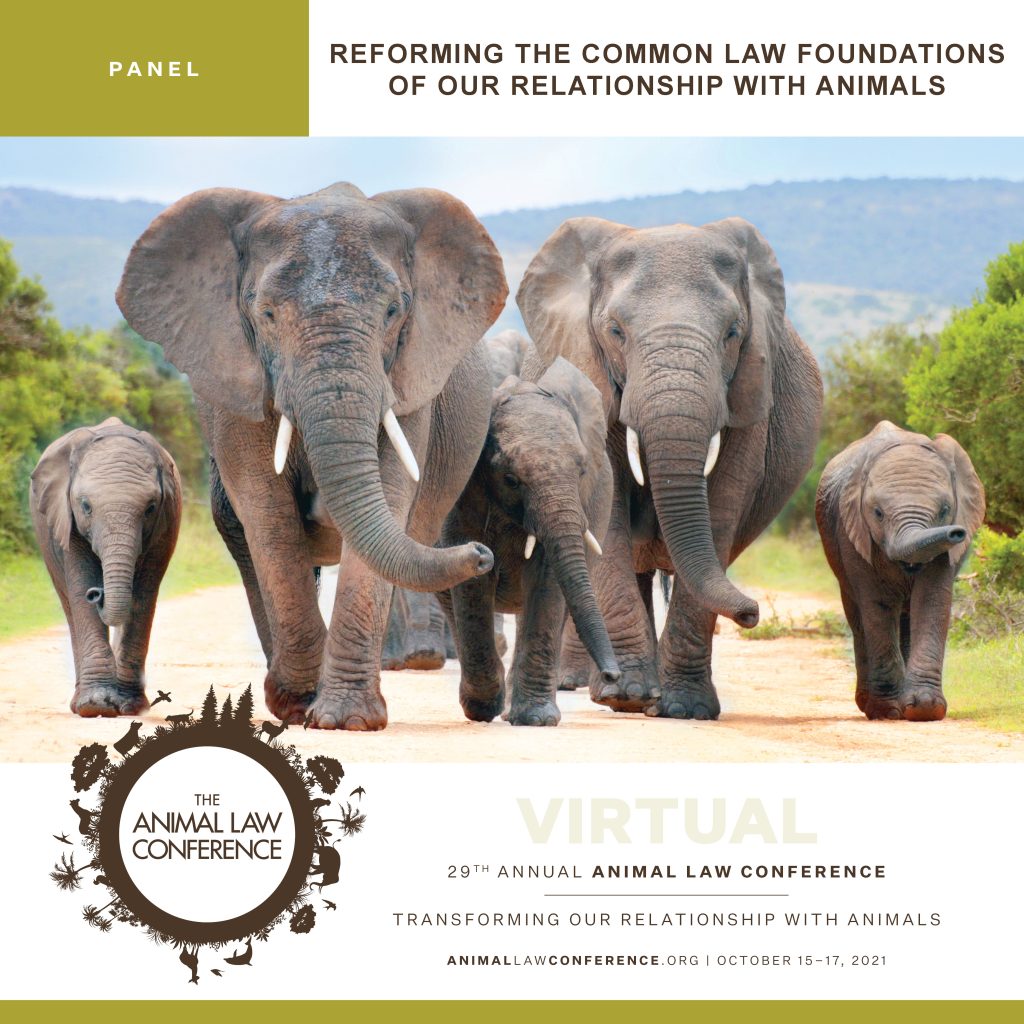
Reforming the Common Law Foundations of Our Relationship with Animals
- General Panel Resources
- Fahey Concurrence – NhRP Tommy Case
- Sandra – Comments re the Ruling (English translation)
- Sandra Ruling (1st instance) – Judge Liberatori (English translation)
- Spanish Version – Comentarios Fallo Sandra – Equipo Judicial Sandra
- Spanish Version – Fallo Sandra (1era instancia) – Jueza Liberatori
- Jake Davis – PowerPoint Presentation
- Owais Awan – PowerPoint Presentation
- The Honorable Elena Liberatori – PowerPoint Presentation

Factory Farming & The Fragility of Our Food System
- General Panel Resources
- 2020 Pork Exports Shatter Previous Records; December Beef Exports Outstanding – U.S. Meat Export Federation
- 2020 IPPC Report – Climate and Land
- 2021 UN Methane Report Summary
- Addressing Concentration in the Meat-Processing Industry to Lower Food Prices for American Families – The White House
- Coronavirus exposed fragility in our food system – it’s time to build something more resilient
- DKT 13 2020-04-20 First Amended Complaint, Downed Pigs
- DKT 22 2020-02-18 First Amended Complaint, Line Speeds
- IPBES Workshop on Biodiversity and Pandemics Report
- It’s Time For An Urgent Intervention In The Food System Ruining Our Climate – Food & Water Watch
- UFCW v USDA Order Granting Partial MSJ, Line Speeds
- Iselin Gambert – PowerPoint Presentation
- Jessica Blome – PowerPoint Presentation
- Hannah Connor – PowerPoint Presentation
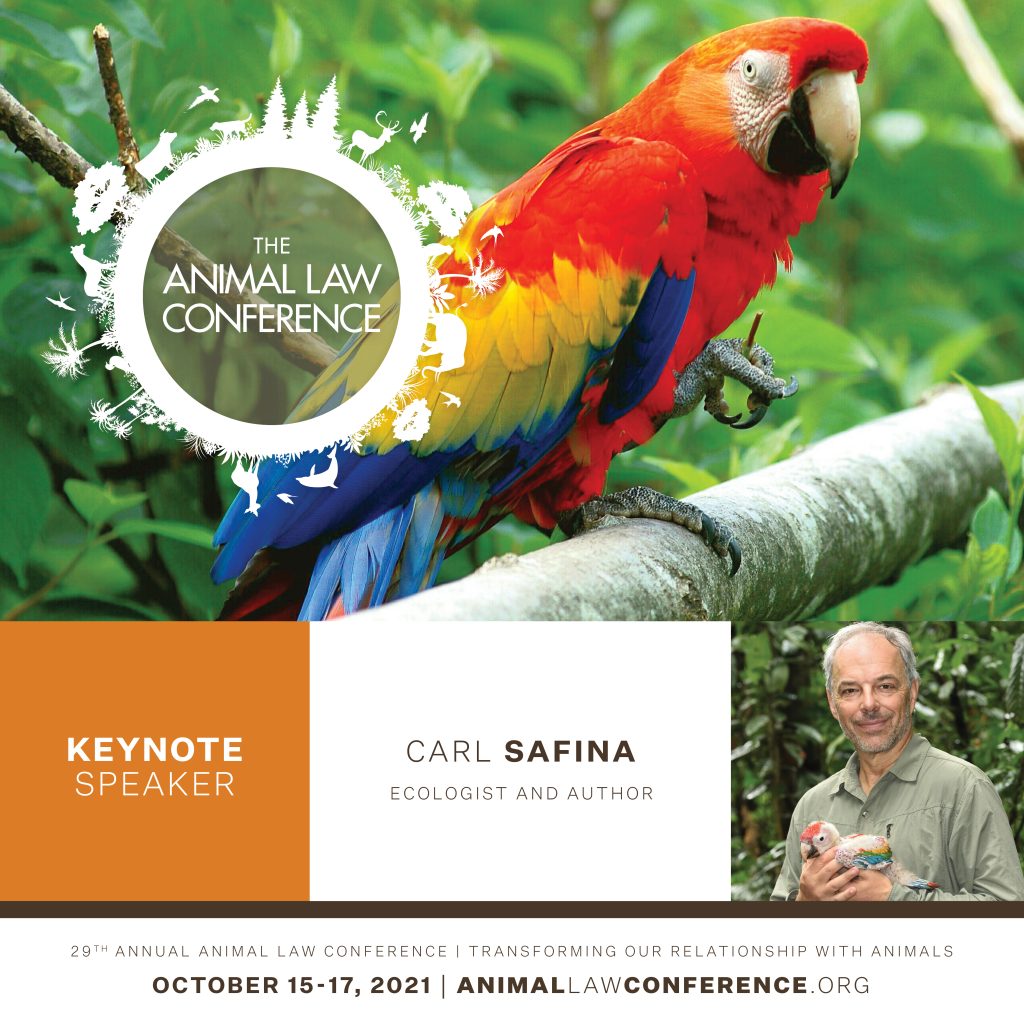
Keynote Presentation: Animal Thought, Emotion, and Culture
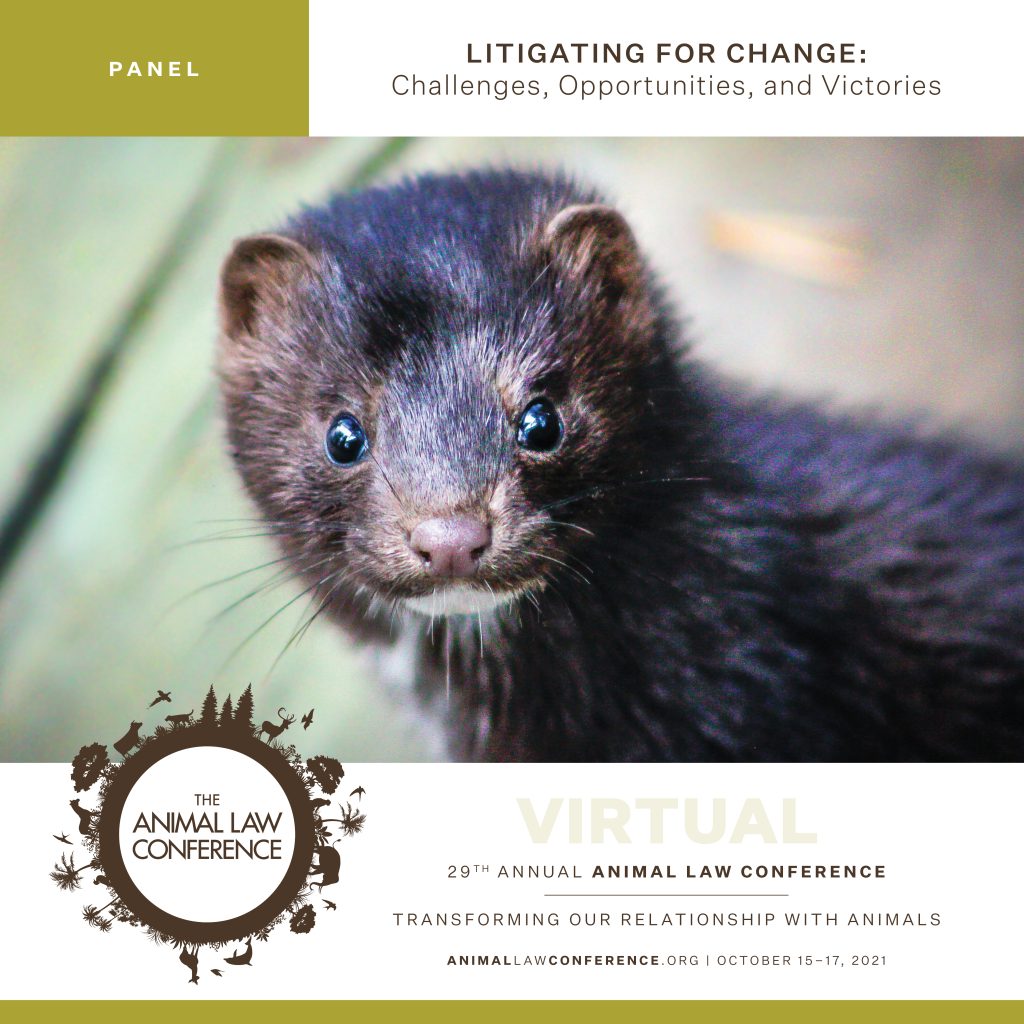
Litigating for Change: Challenges, Opportunities, and Victories
- General Panel Resources
- Justice v. Vercher Appellants Opening Brief
- Verchers Answering Brief
- Justice v. Vercher Reply Brief
- Four Meaningful Legal Victories For Farmed Animals – Animal Outlook
- Lowe – Rule 27 Motion
- Lowe – Rule 27 Order
- Caitlin Hawks – PowerPoint Presentation
- Will Lowrey – PowerPoint Presentation

From the U.S. to Australia: Animal Protection Legislation Across the World
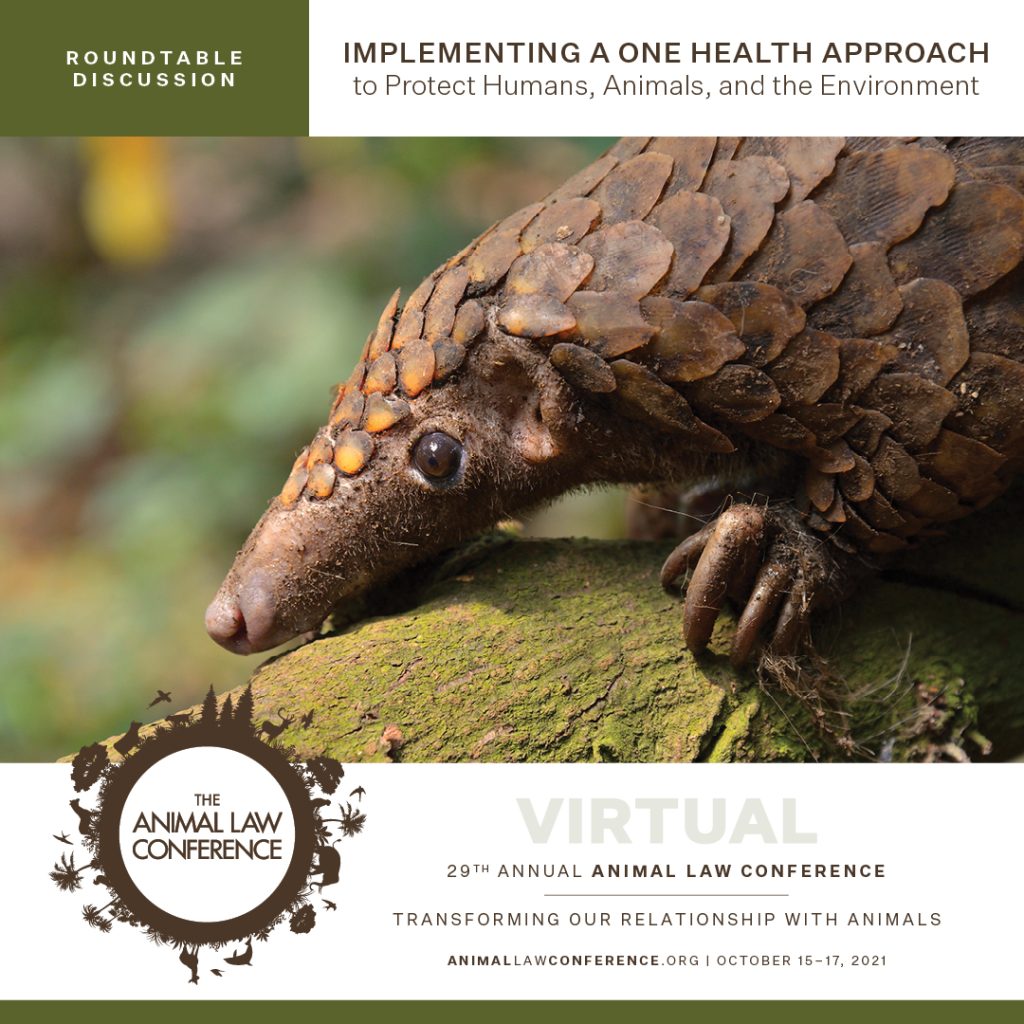
Implementing a One Health Approach to Protect Humans, Animals, and the Environment
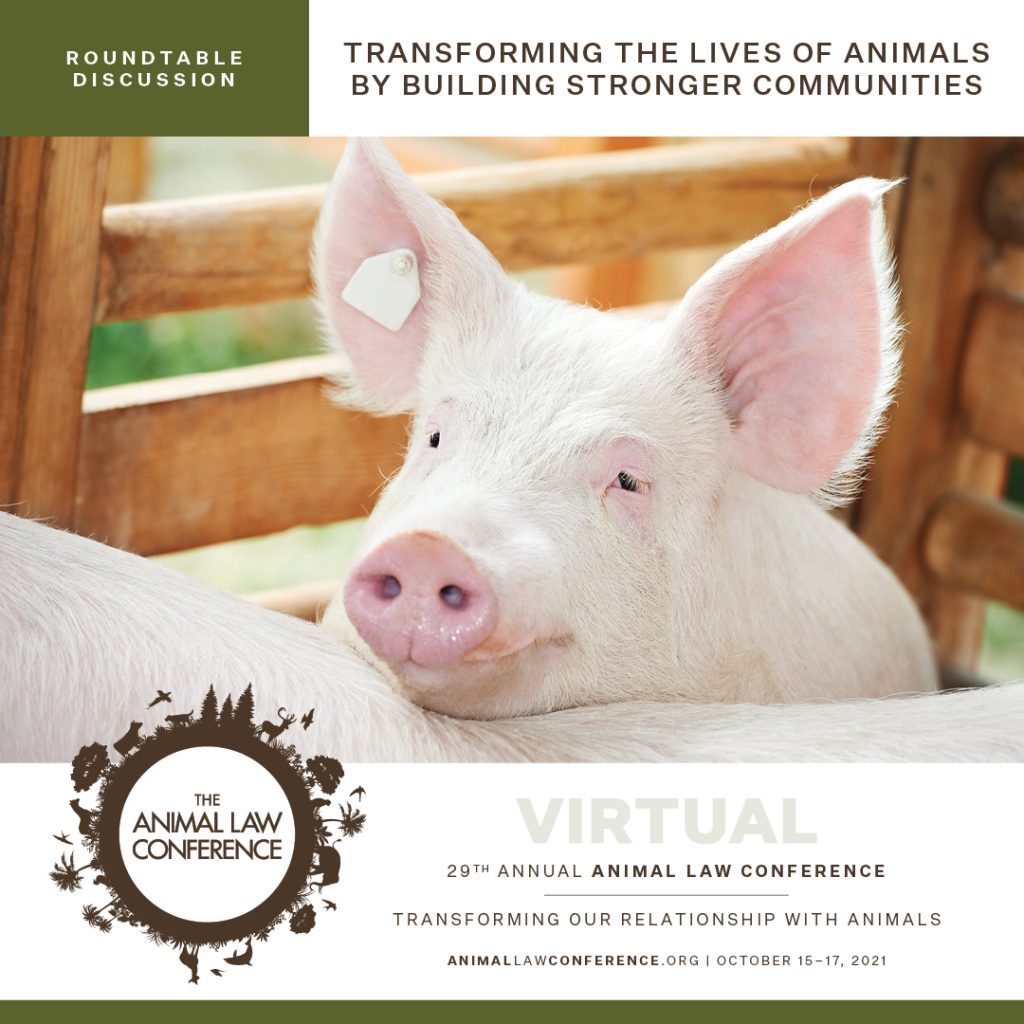
Transforming the Lives of Animals by Building Stronger Communities

Representing Victim Voices: Courtroom Animal Advocate Programs
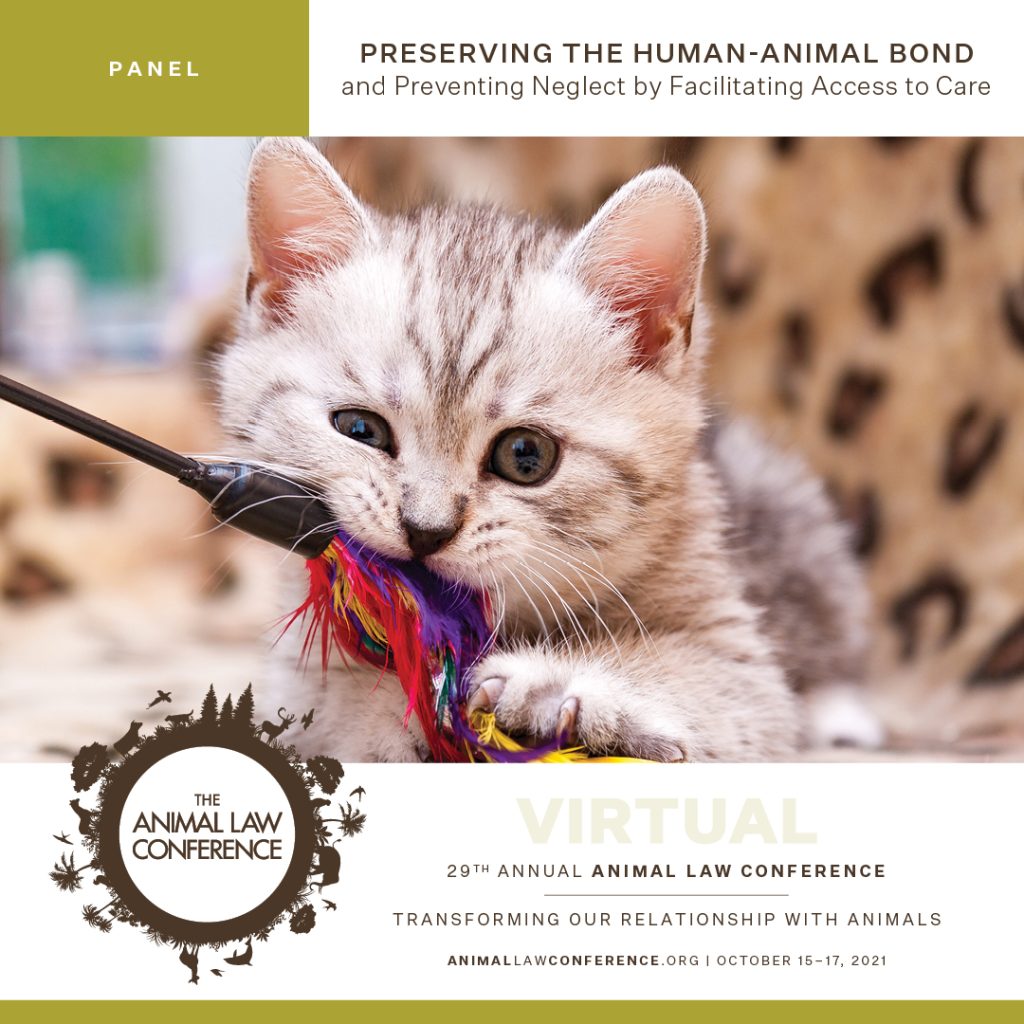
Preserving the Human-animal Bond and Preventing Neglect by Facilitating Access to Care

Legal Ethics and the Animal Lawyer

Empowering Global Ambassadors for Animals One LLM Degree at a Time
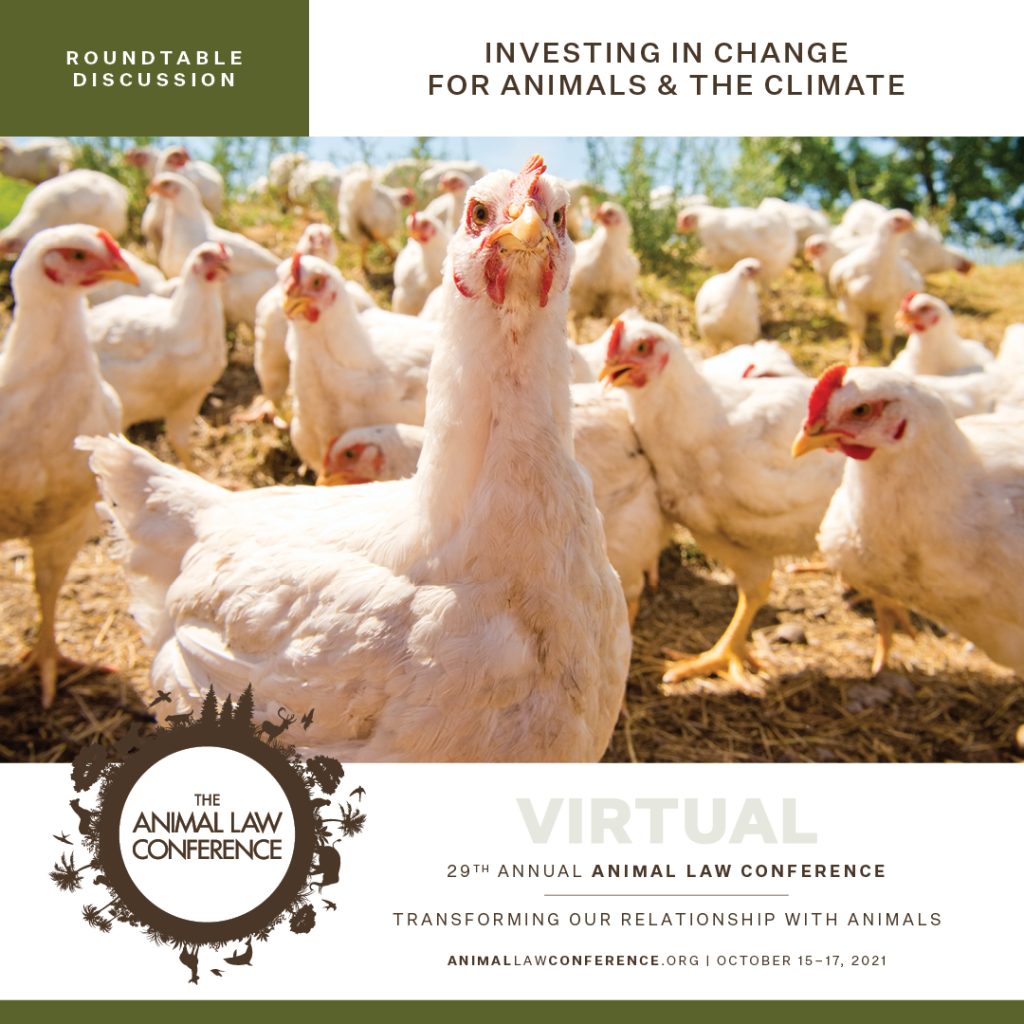
Investing in Change for Animals and The Climate
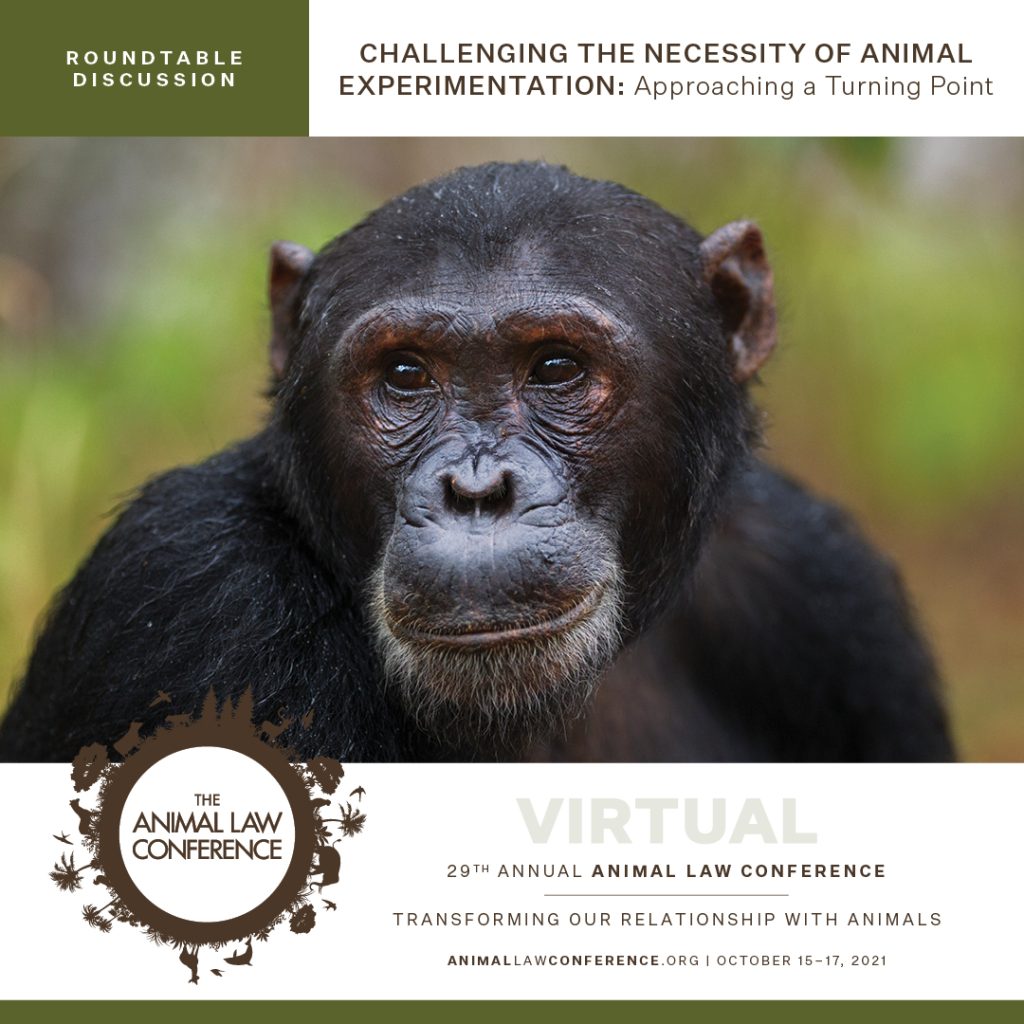
Challenging the Necessity of Animal Experimentation: Approaching a Turning Point
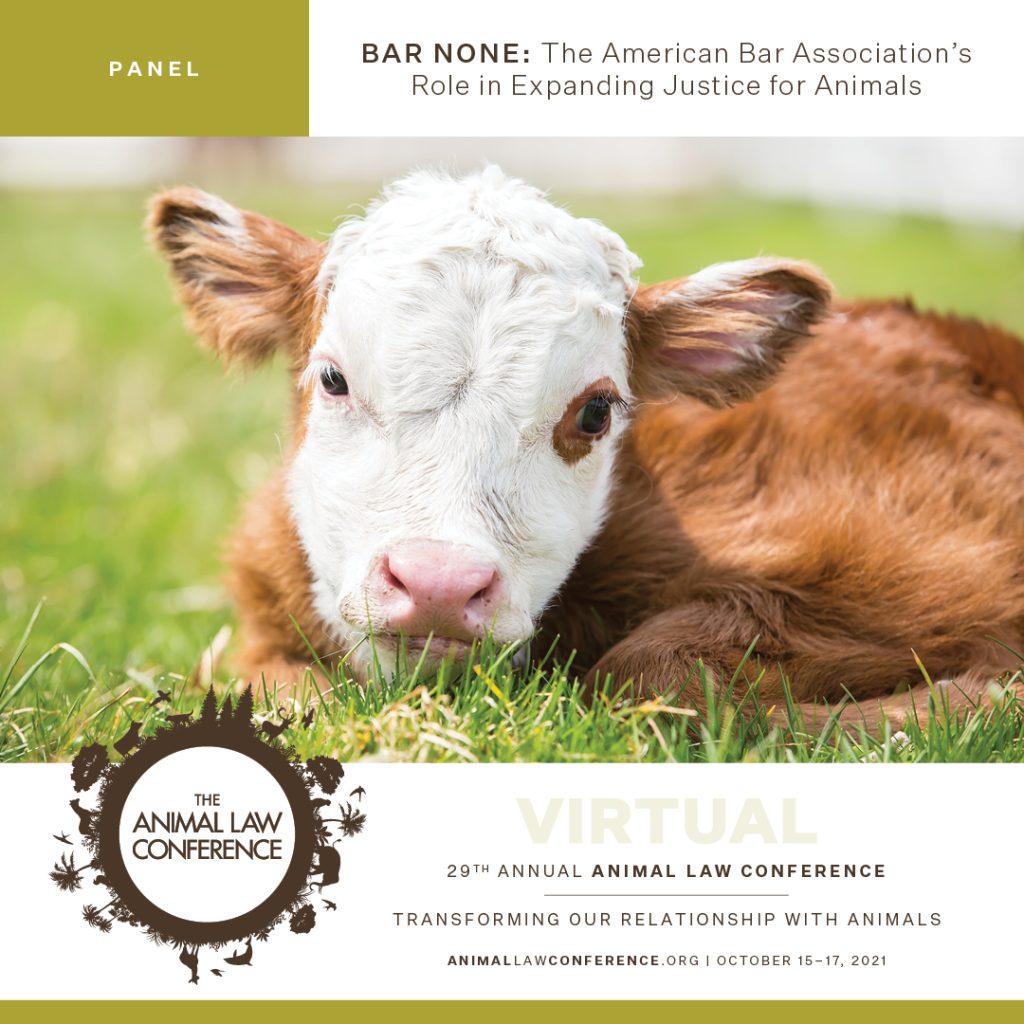
Bar None: The American Bar Association’s Role in Expanding Justice for Animals
- General Panel Resources
- The Convention on Animal Protection (Draft Treaty)
- 2010 ABA Disaster Animals 103A
- 2011 ABA Seized Animals 108B
- 2012 ABA Due Process Breed 100
- 2012 ABA Service Animal Breed 303
- 2015 ABA Private Exotics 105
- 2017 ABA TNVR 102B
- 2018 ABA Military Housing Breed 112
- 2020 ABA Animal Encounter Training 103A
- 2020 ABA MWD 104B
- 2020 ABA Shark Fin 102A
- 2021 ABA ICPA 101C
- Daina Bray & Joan Schaffner – PowerPoint Presentation
- David Favre – PowerPoint Presentation
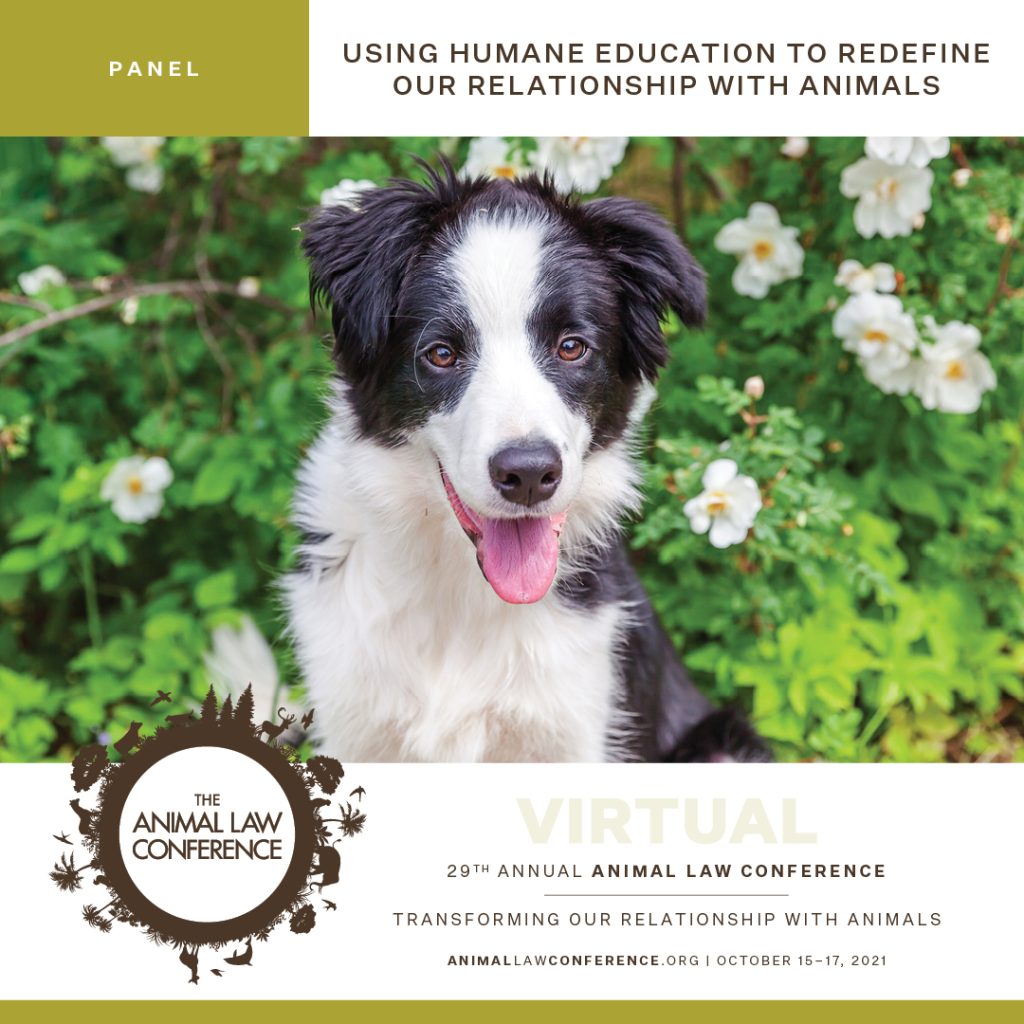
Using Humane Education to Redefine Our Relationship with Animals
The 2021 conference was approved for 10 Continuing Legal Education (CLE) credits, including 1 hour of ethics credit, by the Oregon State Bar Association. Attorneys were required to watch all sessions, either live or on demand, to receive full credit.
Anyone seeking credit in other states must submit approval paperwork to their local bar association CLE boards or retain the certificate of attendance which we provided to attorneys who registered for the conference, if their state has a reciprocal agreement with Oregon. Most states will accept credits from other mandatory CLE states such as Oregon, but please check with your local bar association to confirm.
Please direct any questions relating to CLE credits to events@aldf.org.
Information via the American Bar Association (ABA) regarding CLEs.
Watch all sessions here
Playlist

57:43

1:24:57

1:13:15

53:06

1:24:45

1:12:31

56:04

55:02

1:13:24

1:13:24

1:08:41

55:08

1:01:56

55:02

56:39

